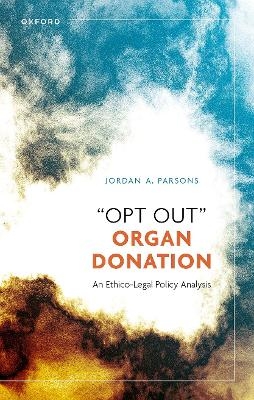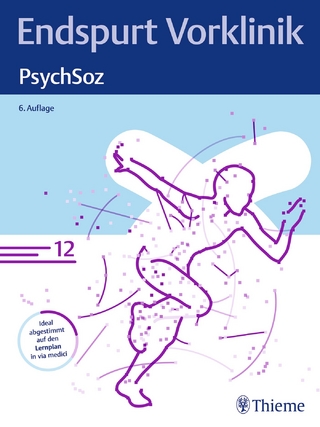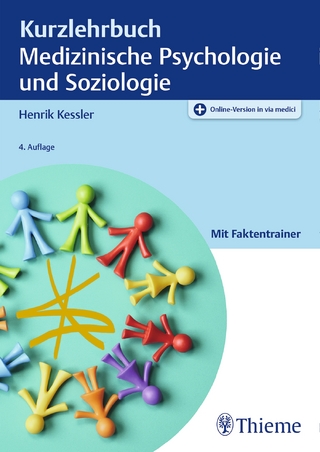
“Opt Out” Organ Donation
An Ethico-Legal Policy Analysis
Seiten
2025
Oxford University Press (Verlag)
978-0-19-287080-3 (ISBN)
Oxford University Press (Verlag)
978-0-19-287080-3 (ISBN)
- Noch nicht erschienen (ca. Februar 2025)
- Versandkostenfrei innerhalb Deutschlands
- Auch auf Rechnung
- Verfügbarkeit in der Filiale vor Ort prüfen
- Artikel merken
“Opt Out” Organ Donation offers the first comprehensive analysis of all four UK opt out systems. Rather than assessing the success of these systems in increasing transplantation activity - which it is ultimately too soon for - this book examines the paths to and design of these systems.
A global shortage of organs for transplantation has led to myriad proposals for improving supply. One that has gained significant traction is so-called “opt out”, wherein donation becomes the default, and the burden falls on those who do not want their organs used to formally record this.
Despite widespread uptake, opt out models are far from flawless. They have, in their theoretical form, been criticised for masquerading as informed consent and inadequately involving families in decisions. In their realised form, they have been suggested to be redundant given practical challenges in following through with the core tenet. Alongside such critiques are concerns around designing opt out systems to satisfy public awareness requirements and protect the vulnerable from inappropriate inclusion.
This book offers the first comprehensive analysis of all four UK opt out systems. Rather than assessing the success of these systems in increasing transplantation activity - which it is ultimately too soon for - this book examines the paths to and design of these systems. In dissecting the construction, it manoeuvres towards a better understanding of what a “good” opt out system might look like, offering important considerations in the development of future examples elsewhere.
Through this analysis, this book also explores the relationship between the four UK nations in their respective moves to introduce opt out. Further, it incorporates comparative discussion with the systems of the Crown Dependencies, highlighting important interplays between the UK and these neighbouring jurisdictions. In doing so, it contributes to the growth of scholarly interest in the impact of devolution on healthcare law.
A global shortage of organs for transplantation has led to myriad proposals for improving supply. One that has gained significant traction is so-called “opt out”, wherein donation becomes the default, and the burden falls on those who do not want their organs used to formally record this.
Despite widespread uptake, opt out models are far from flawless. They have, in their theoretical form, been criticised for masquerading as informed consent and inadequately involving families in decisions. In their realised form, they have been suggested to be redundant given practical challenges in following through with the core tenet. Alongside such critiques are concerns around designing opt out systems to satisfy public awareness requirements and protect the vulnerable from inappropriate inclusion.
This book offers the first comprehensive analysis of all four UK opt out systems. Rather than assessing the success of these systems in increasing transplantation activity - which it is ultimately too soon for - this book examines the paths to and design of these systems. In dissecting the construction, it manoeuvres towards a better understanding of what a “good” opt out system might look like, offering important considerations in the development of future examples elsewhere.
Through this analysis, this book also explores the relationship between the four UK nations in their respective moves to introduce opt out. Further, it incorporates comparative discussion with the systems of the Crown Dependencies, highlighting important interplays between the UK and these neighbouring jurisdictions. In doing so, it contributes to the growth of scholarly interest in the impact of devolution on healthcare law.
Jordan A. Parsons is Assistant Professor in Medical Ethics and Law at the University of Birmingham Medical School. His research is at the intersection of ethics, law, and policy in relation to healthcare, and employs both normative and empirical approaches. Amongst Jordan's range of research interests are organ donation and transplantation, nephrology, sexual and reproductive health, mental capacity, telemedicine, and policy transfer. He has published widely on these topics and more, including his recent co-authored book Early Medical Abortion, Equality of Access, and the Telemedical Imperative (Oxford University Press). Jordan is also co-editing the forthcoming Routledge Handbook of Empirical Bioethics.
| Erscheint lt. Verlag | 27.2.2025 |
|---|---|
| Verlagsort | Oxford |
| Sprache | englisch |
| Maße | 138 x 216 mm |
| Themenwelt | Medizin / Pharmazie ► Gesundheitswesen |
| Medizin / Pharmazie ► Medizinische Fachgebiete ► Medizinethik | |
| Studium ► 1. Studienabschnitt (Vorklinik) ► Med. Psychologie / Soziologie | |
| Studium ► Querschnittsbereiche ► Geschichte / Ethik der Medizin | |
| ISBN-10 | 0-19-287080-7 / 0192870807 |
| ISBN-13 | 978-0-19-287080-3 / 9780192870803 |
| Zustand | Neuware |
| Haben Sie eine Frage zum Produkt? |
Mehr entdecken
aus dem Bereich
aus dem Bereich


